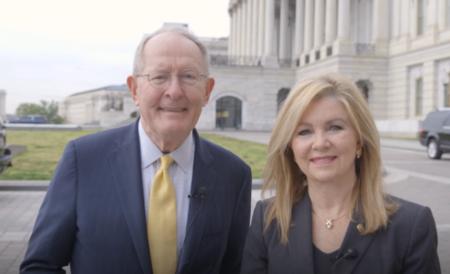Halls High School. Mid-1960s. We were a homogeneous bunch of white farm kids whose parents no doubt voted Republican.
A handful of us were smart, confident kids who liked to spar over political ideas. We would surely grow up to vote Republican, too.
Our social studies teacher, Sandra Williams, actually had us reading and debating college-level political writings. (One year she gave us the choice of reading Animal Farm, 1984 or Dr. Zhivago over the Christmas break. I read all three.)
We learned about the dangers of dictatorship and the wonderful blessings of representative government. We studied separation of powers. We learned that political and economic freedom go hand-in-hand. We stayed after class to keep talking.
Imagine Lamar Alexander, Maryville High School, mid-1950s; Tim Burchett, Bearden High School, early-1980s. Both grew up to go to Congress; both vote Republican. Did they stay after school to debate political ideas?
Have they read John Locke? Thomas Paine? Heck, even Jon Meacham?
Why would someone endure the torturous process of running for Congress (it’s 24/7/365) only to cede power to the executive branch?
Ideas to consider. Take out personalities. Pretend you are writing the constitution.
- Should war be launched by the president alone, or should Congressional approval be required?
- Should the military and justice system work for the president alone, or should Congressional oversight be required?
- Should the president be allowed to impound funds appropriated by Congress if he/she disagrees with the purpose?
Now reinsert the personalities.
President Trump has never polled over 50 percent.
But Congress polls even lower – less than 20 percent in this May 2019 Gallup poll.
Agree or disagree with Trump’s policies, we must be wary of any president who acts like God.
Representative government and capitalism are messy and sometimes unfair. But both are preferable to a political dictatorship or monarchy and a collectivist economic system.
I zipped off an email to Sen. Alexander recently: “Vote country, not party.” We’ll see how that works out. Meanwhile, let’s all take a deep breath and remember George Washington.
The man who led the Revolutionary Army could have become a king. He served two terms as president and walked away. He didn’t write the constitution, but he loved it and once observed that its strength was the ability of the people to change it.
Washington didn’t like political parties, possibly foreseeing the warring tribes that Congress has become.
American history can be viewed as a progression of increasingly powerful presidents pushing the limits of constitutional authority – from Lincoln’s Emancipation Proclamation to JFK’s attempted invasion of Cuba to Donald Trump’s assassination of Iranian Major General Qassem Soleimani – good ideas, but outside the constitutional power of the executive acting alone.
We live in interesting times – the beginning of the end or the end of the beginning.
Sandra Clark is editor/CEO of KnoxTNToday.com.

